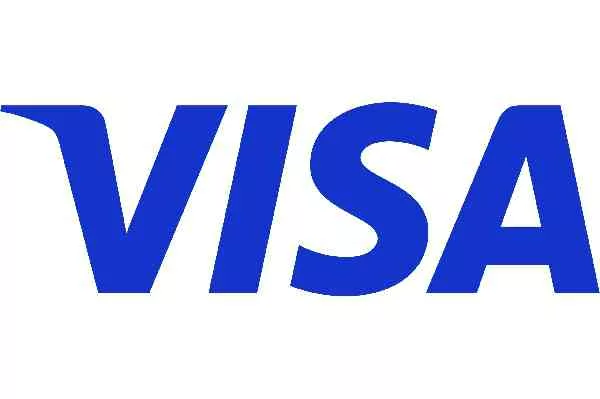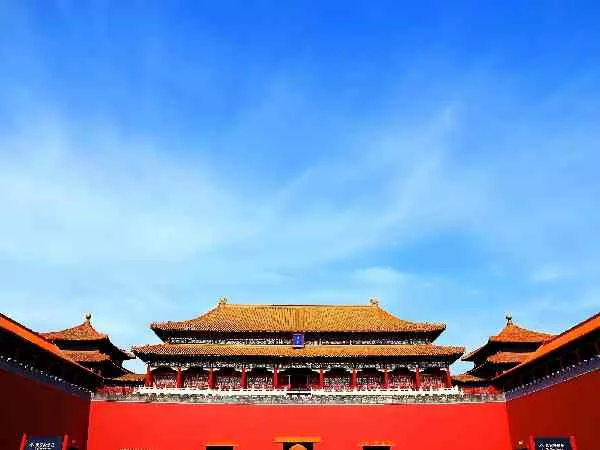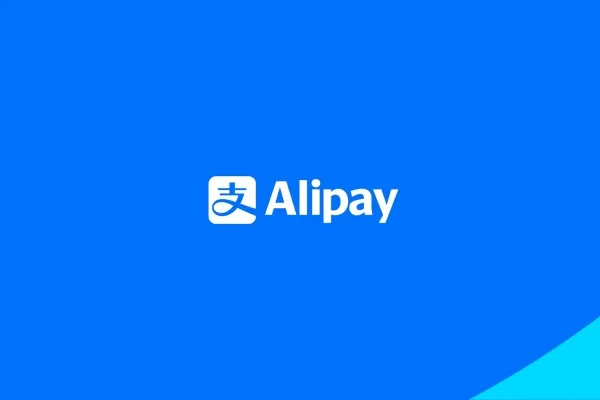Introduction to Money Exchange in China
China’s currency, the yuan (CNY), is not fully convertible, meaning there are specific regulations and practical steps to navigate when exchanging money. This guide outlines the most effective strategies for Americans traveling or living in China to ensure smooth, cost-efficient transactions while complying with local laws.
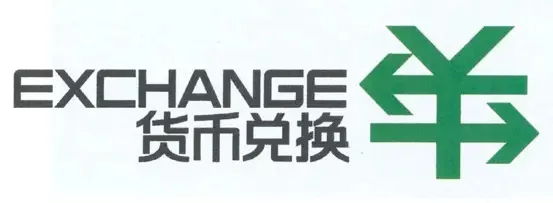
Key Regulations for Money Exchange in China
Understanding Foreign Exchange Laws
China’s State Administration of Foreign Exchange (SAFE) plays a pivotal role in regulating currency transactions. It’s crucial to be aware of the annual limit of $50,000 for individual currency exchange. This limit is strictly enforced and applies to both inbound and outbound transactions. For example, if you plan to exchange a large sum of money for a business investment or a major purchase, you need to ensure it falls within this annual cap.
Moreover, any transactions exceeding $10,000 must be declared. This is a key anti – money laundering measure. Suppose you are a business traveler bringing in a significant amount of foreign currency for a business deal in China. If the amount is over $10,000, you are legally required to declare it at the customs or relevant financial institutions. Violating these regulations can have serious consequences, including hefty fines and potential account freezes. There have been cases where individuals, unaware of these rules, have faced financial penalties for non – compliance. So, always stay informed and abide by the regulations to avoid unnecessary legal troubles.
Required Documentation
Valid identification is the first and most basic requirement for any money exchange in China. Whether you are a tourist or a long – term resident, carrying a valid passport or residence permit is essential. These documents serve as proof of your identity and are used to verify your transaction details. For instance, when you walk into a bank to exchange currency, the teller will first ask for your identification to initiate the process.
For larger transactions, additional documentation is often needed. If you are exchanging money for the purpose of travel, you may need to present travel tickets as proof. Similarly, if it’s for renting a property, a rental agreement can be required. This extra paperwork helps financial institutions ensure that the funds are being used for legitimate purposes and also helps in tracking large – scale financial transactions. So, always be prepared to provide these documents to ensure a smooth exchange process.
Best Practices for Currency Exchange
Opt for Bank Exchanges
When it comes to money exchange in China, major banks such as the Bank of China and the Industrial and Commercial Bank of China (ICBC) are your best bet. These banks have a long – standing reputation for offering competitive exchange rates. They are closely regulated, which ensures that the rates they offer are in line with the market standards set by the People’s Bank of China. For example, if you are exchanging US dollars to yuan, the rates at these banks are often more favorable compared to smaller, less – regulated exchange points.
Moreover, the services provided by these banks are highly secure. They have advanced security systems in place to protect your financial information during the exchange process. Their staff is also well – trained to handle various currency – related transactions, providing you with accurate information and guidance. In contrast, airport kiosks may seem convenient at first glance, but they usually charge exorbitant fees. The exchange rates offered at these kiosks can be significantly lower, meaning you will get fewer yuan for your dollars. So, if you have the time, it’s always better to visit a bank for currency exchange.
Use Mobile Apps for Real – Time Rates
In the digital age, mobile apps have become an indispensable tool for currency exchange. Apps like Wise (formerly TransferWise) and Revolut are designed to provide users with real – time exchange rates. This means you can monitor the rates throughout the day and choose the most opportune moment to make your exchange. For instance, if the yuan is strengthening against the dollar, you can wait until the rate is at its best to convert your currency.
These apps also offer low – cost transfer options. They often have lower fees compared to traditional banks for international transfers. Some apps even allow you to pick up cash at partner locations in China. For example, Wise has partnerships with certain local banks and financial institutions in China, enabling you to transfer money from abroad and withdraw it in yuan at these partner locations. This is especially useful for travelers who need immediate access to local currency upon arrival.
Leverage UnionPay Debit Cards
UnionPay debit cards are a convenient and cost – effective option for accessing yuan in China. These cards are widely accepted across the country, whether you are at an ATM to withdraw cash or at a merchant to make a purchase. When using a UnionPay debit card to withdraw cash from an ATM, the fees are generally minimal. This is a great advantage over using foreign – issued cards, which may incur high international transaction fees.
However, it’s important to notify your bank before traveling to China. This simple step can prevent any unexpected transaction blocks. Banks often have security measures in place to protect against fraud, and a sudden withdrawal in a foreign country like China could trigger a block on your card. By notifying your bank in advance, you can ensure that your card will work smoothly when you need it, allowing you to access your funds without any hassle during your stay in China.

Avoiding Common Pitfalls
Steer Clear of Underground Exchanges
The allure of potentially better rates from unofficial money changers might seem appealing, but it comes with a host of serious risks. These underground exchanges operate outside the bounds of the law, which means there is no regulatory oversight to protect your interests. One of the most common risks associated with these illegal operations is the high probability of receiving counterfeit bills. Since there is no legal recourse when dealing with underground money changers, if you discover that you’ve been given fake currency, you’re likely to be left with significant financial losses.
Moreover, scams are rampant in the world of underground money exchanges. There have been numerous reports of individuals being promised a certain exchange rate but then being short – changed during the transaction. Some scammers use complex tricks to deceive unsuspecting customers, such as using sleight – of – hand to manipulate the amount of money being exchanged or using false exchange rate information. For example, they might show you a high – rate sign to attract you but then use a different, much lower rate when actually making the exchange. It’s not worth the risk to engage with such illegal entities; always choose legal and regulated exchange methods to safeguard your finances.
Plan Ahead for Large Transactions
When planning to exchange a large sum of money in China, it’s essential to plan well in advance. Most banks in China require prior notice for large – scale currency exchanges. This is because banks need to ensure they have sufficient foreign currency in stock to meet your request. If you suddenly show up at a bank and ask to exchange a large amount, say $50,000 or more, there’s a high chance that the bank won’t be able to fulfill your request immediately.
For amounts over ¥50,000, many bank branches will require you to make an appointment. By making an appointment, you give the bank time to prepare the necessary currency and ensure that all the paperwork and regulatory requirements are in order. This not only ensures a smooth transaction for you but also helps the bank manage its currency reserves effectively. For instance, if you are a businessperson planning to invest a large sum in China and need to exchange a substantial amount of dollars into yuan, contacting the bank a few days in advance and scheduling an appointment can prevent any last – minute delays or complications. So, don’t wait until the last minute; plan ahead for large – scale money exchanges to avoid unnecessary stress and potential financial setbacks.
Digital Payment Solutions
Alipay and WeChat Pay
In China, Alipay and WeChat Pay are the titans of the mobile payment arena. Alipay, which was initially developed to support transactions on Alibaba’s e – commerce platforms, has now evolved into a comprehensive financial super – app. It offers a plethora of services, from paying for groceries at a local mom – and – pop store to handling utility bills. WeChat Pay, on the other hand, piggybacked on the massive user base of the WeChat social media platform. Its seamless integration with social features makes it a favorite for peer – to – peer transfers, such as splitting the bill after a meal with friends.
For Americans in China, these apps are a game – changer. Linking a foreign bank card to Alipay or WeChat Pay is becoming increasingly straightforward. Many international banks have partnered with these platforms, allowing users to convert funds within the app. Once linked, making purchases is as simple as scanning a QR code. For example, when you’re at a bustling street market in Shanghai, instead of fumbling for cash or a card, you can quickly pay for your delicious street food by scanning the vendor’s QR code with your Alipay or WeChat Pay app. This not only speeds up the transaction process but also provides a convenient way to keep track of your expenses, as all transactions are recorded within the app.
Digital Wallets for Tourists
While Alipay and WeChat Pay are dominant, global digital wallets like PayPal do have a presence in China, albeit a smaller one. Some international – branded hotels, high – end retailers, and certain international – facing service providers may accept PayPal. For instance, luxury hotels in major cities like Beijing and Shanghai often cater to international clientele and are more likely to have PayPal as an accepted payment option. However, it’s important not to assume that PayPal will be widely available.
Before relying on PayPal or other international wallets during your travels in China, it’s essential to confirm payment options in advance. This can save you from potential embarrassment or inconvenience at the checkout counter. You can either check the merchant’s website or give them a call to inquire about their accepted payment methods. Additionally, some merchants may display signs indicating which payment methods they accept, so keep an eye out for these. In cases where PayPal isn’t an option, having Alipay or WeChat Pay as a backup ensures that you can still make your purchase without a hitch.
Case Study: A Weekend in Shanghai
Let’s take a practical example to illustrate the importance of choosing the right money exchange method. Imagine you’re an American tourist spending a weekend in Shanghai. You need to exchange $1,000 into yuan for your weekend expenses.
If you choose to exchange your money at the Bank of China, they offer an exchange rate of 6.8 CNY/USD. With a 0.1% service fee, which is $1 in this case, the calculation would be as follows: First, you calculate the amount of yuan you get without considering the fee, which is $1,000 * 6.8 = ¥6,800. Then, you subtract the $1 fee, so you end up with ¥6,799.
Now, let’s consider the option of using an airport kiosk. Suppose the airport kiosk offers an exchange rate of 6.6 CNY/USD and charges a flat service fee of ¥200. The amount of yuan you would receive is calculated as $1,000 * 6.6 – ¥200 = ¥6,400.
The difference between the two options is significant. By choosing the bank over the airport kiosk, you save ¥6,799 – ¥6,400 = ¥399. In Shanghai, this amount is equivalent to a mid – range restaurant meal. You could enjoy a delicious dinner at a local restaurant with the money you saved by making a smart choice in currency exchange. This case study clearly demonstrates how important it is to compare different exchange options and choose the one that offers the best value for your money.
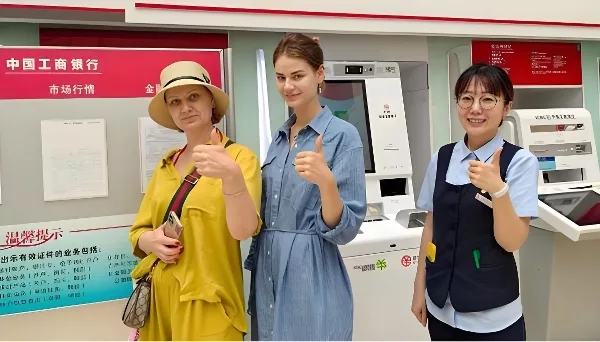
FAQs
Can I exchange money at international banks in China?
A: Yes, but rates are often less favorable. Major international banks like Citibank or HSBC may offer yuan services. However, their exchange rates might not be as competitive as domestic Chinese banks due to differences in their business models and access to the local currency market. It’s always a good idea to compare rates across different banks before making a decision.
What if I need to exchange more than the annual limit?
A: Exceeding annual limits requires approval from SAFE, typically for business or educational purposes. You will need to provide detailed documentation to support your request. For business – related exchanges, this could include business contracts, invoices, and proof of business registration. In the case of educational expenses, you may need to present admission letters from educational institutions, tuition fee receipts, and other relevant documents. SAFE will review your application based on these documents to determine whether to approve the exchange.
Are underground money exchanges a viable option?
A: Yes. Underground exchanges violate Chinese law and can result in legal action. As mentioned earlier, engaging with such illegal operations not only exposes you to financial risks like receiving counterfeit money and being scammed but also puts you at risk of legal consequences. The Chinese government has been cracking down on underground money – changing activities to maintain the stability of the financial system and prevent illegal financial transactions such as money laundering and tax evasion. So, it’s crucial to stay away from these illegal channels and use legal and regulated exchange methods.
Conclusion
Mastering money exchange in China requires balancing convenience with compliance. By using regulated banks, digital tools, and careful planning, Americans can enjoy hassle – free transactions while maximizing their purchasing power. Always prioritize transparency and legality to avoid unnecessary complications.
